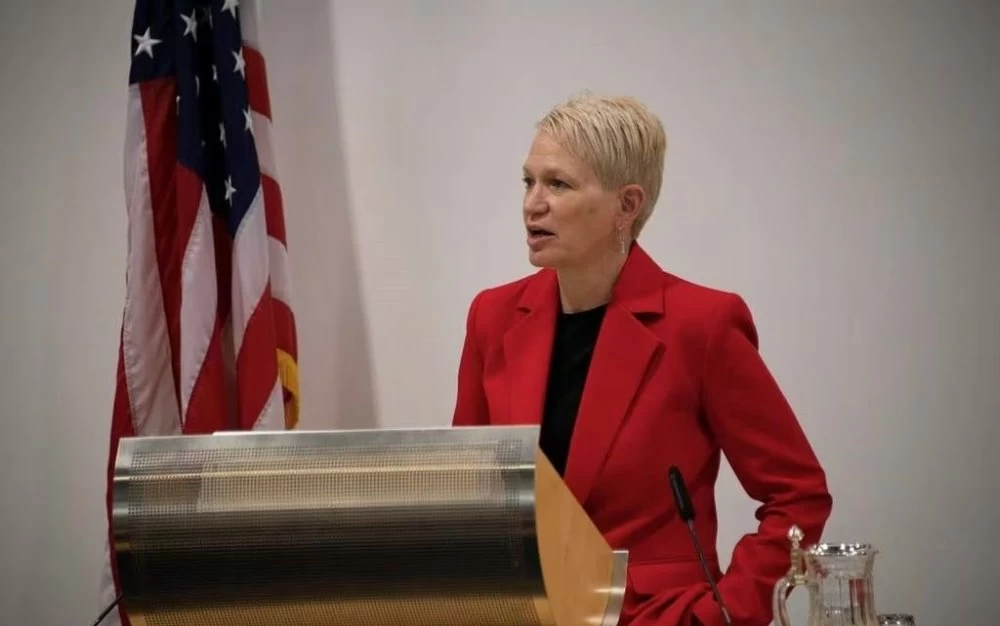
USAID Chief Hails Morocco’s Good Governance, Inclusive Development & Climate Change Policy
Administrator of U.S. Agency for International Development, Samantha Power, has praised Morocco’s inclusive development, good governance and education reform to meet the needs of the labor market.
At a meeting held Wednesday in Rabat with Moroccan foreign minister Nasser Bourita, the USAID chief commended Morocco’s efforts made to reduce greenhouse gas emissions, enhance youth empowerment and counter extremism.
Talks focused on the longstanding partnership between the two countries and opportunities for USAID and Morocco to work trilaterally with partners in Africa on addressing key development challenges like climate change, food security, trade & investment.
During her working visit to the country (May 19-22), Samantha Power announced new partnerships building on the more than six decades of cooperation ties between USAID and Morocco.
The Administrator launched a new partnership with the Rabita Mohammedia League of Scholars and International Organization for Migration. This local partnership empowers youth and supports the Government of Morocco’s efforts to address challenges confronting young Moroccans, such as difficulty accessing quality education, high unemployment rates, and disenfranchisement, by engaging youth in a wide range of opportunities from sports clubs to vocational training.
USAID Administrator Power also announced a new partnership with the Moroccan phosphate OCP Group, underscoring the commitment of USAID and the world major fertilizer producer to address food insecurity throughout Africa and to working together to tackle critical barriers hindering Africa’s agricultural potential.
Through this new partnership, OCP will invest $30 million, using USAID’s Space to Place approach, to support efficient fertilizer use across sub-Saharan Africa. This pairs with USAID’s $40 million investment in Space to Place announced at the Africa Fertilizer and Soil Health Summit in Nairobi on May 7.
The Space to Place approach provides hyperlocal fertilizer recommendations to optimize productivity and return on investment for farmers. USAID collaborated with OCP through the food, fuel, and fertilizer crises, including the provision of 550,000 metric tons of fertilizer for sub-Saharan Africa in 2022-2023.
During the trip, USAID chief also announced a new partnership with Mohammed VI Polytechnic University (UM6P) and GiveDirectly to launch the first component of USAID’s new climate program in the country.
The new Cooperative Resilience Program, with funding from USAID, UM6P, and GiveDirectly, and in collaboration with Morocco’s National Initiative for Human Development, will provide financing, training, and coaching to vulnerable Moroccan cooperatives and entrepreneurs to help them better adapt to the impacts of climate change in rural areas.
